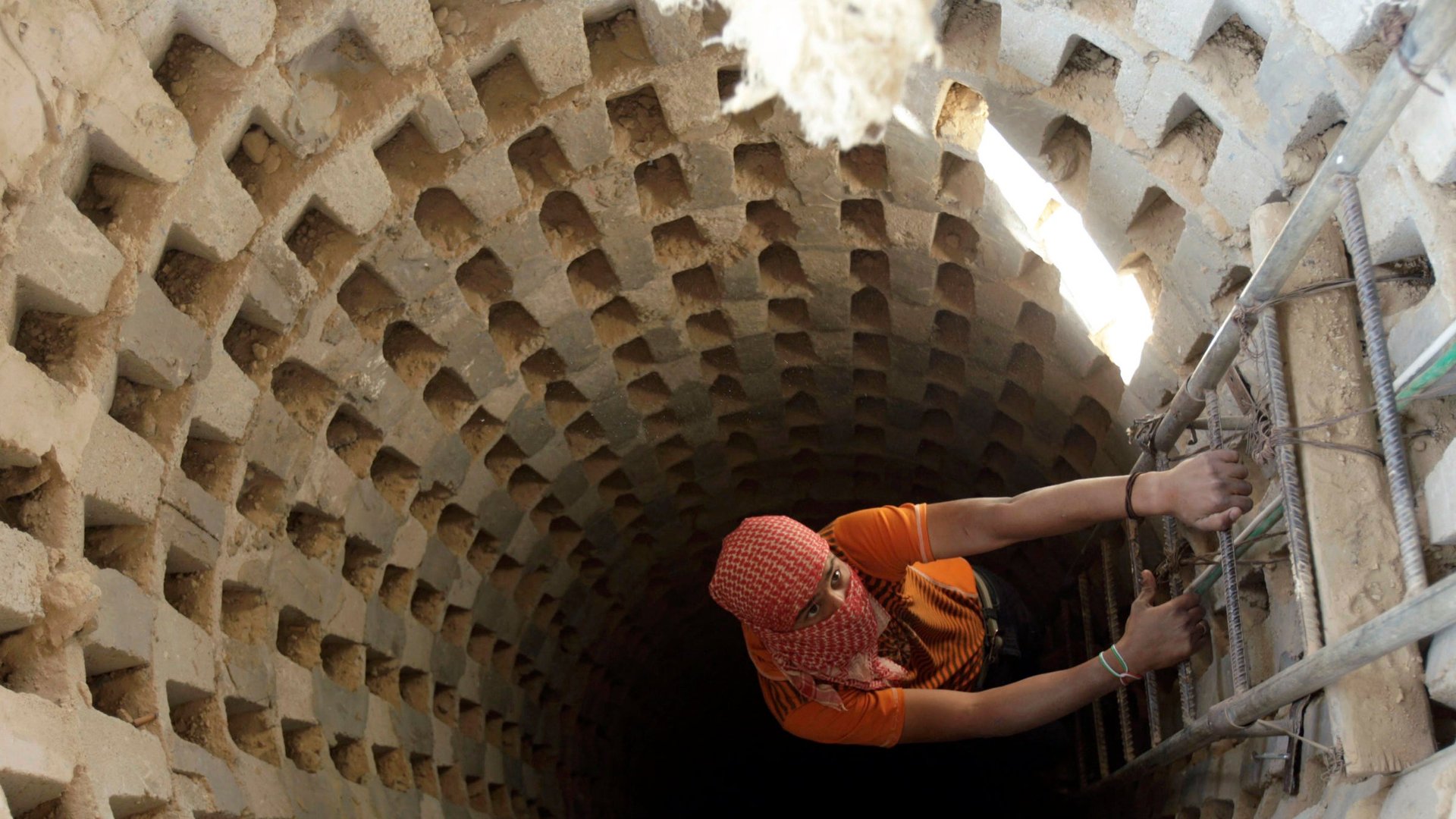With the Muslim Brotherhood down in Egypt, Hamas in Gaza may be next
Egypt’s military never liked Hamas. It saw the Palestinian movement that has run the Gaza Strip since 2007, close cousins to Egypt’s own Muslim Brotherhood, as a beachhead in the Islamist project to take over all of the Middle East and North Africa. And now that Egypt’s generals have pushed the Islamists out of power in their own country, they’ve apparently set their sights on doing the same in Gaza.


Egypt’s military never liked Hamas. It saw the Palestinian movement that has run the Gaza Strip since 2007, close cousins to Egypt’s own Muslim Brotherhood, as a beachhead in the Islamist project to take over all of the Middle East and North Africa. And now that Egypt’s generals have pushed the Islamists out of power in their own country, they’ve apparently set their sights on doing the same in Gaza.
Yesterday (Sept. 1), officials said they would impose a 500-meter (1,640 feet) buffer zone along Egypt’s border with the southern end of Gaza, and the army has started bulldozing homes in the area. That will further tighten a stranglehold on Gaza’s economy that began even before the ouster of Egyptian president Mohamed Morsi in early July. The border area was once threaded with hundreds of underground tunnels—perhaps as many as 1,200—that ran between buildings on either side of the border and acted as conduits for everything from livestock and building materials to cigarettes and luxury goods, as well as weapons for militants. Now, the number of tunnels is down to “a few dozen.” The bulldozers clearing the buffer zone will cave in existing tunnels, so any new ones will need to be much longer to reach beyond it.
That leaves Gaza’s economy, up to half of which depended on the tunnel trade at times, extremely vulnerable. Gaza’s other main passage is a crossing on the border with Israel, which frequently closes (ostensibly, at least, for security reasons), and where the flow of goods both in and out is tightly controlled. This will put added pressure on the Hamas government, as well as on Israel, which will now have more influence than ever over Gaza’s economic well-being.
Egypt’s move is particularly striking because in the years after Hamas took over Gaza, the government of Hosni Mubarak treated it with suspicion but a wary respect. It turned a blind eye to the smuggling trade, both because Egyptian public opinion was generally sympathetic to the Palestinians, and because of Egypt’s own large base of Islamist support. But the generals now running Egypt—who are a throwback to the Mubarak era in many ways—have evidently decided that, after suppressing the Islamists in their own country, they can show them no quarter anywhere.